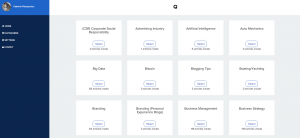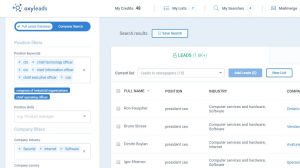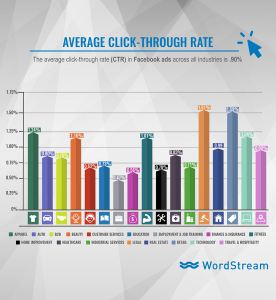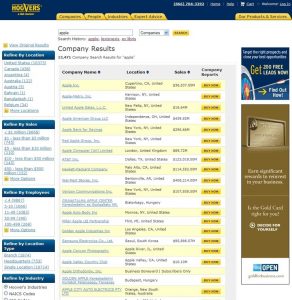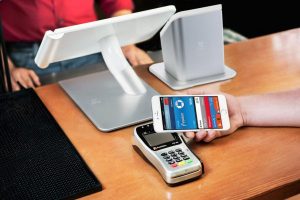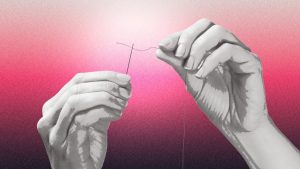The CARES Act offers small business funding and coronavirus relief that can’t come fast enough. Here’s what you need to know about the PPP, loan forgiveness and more.
We don’t need to tell you about the crippling impact the coronavirus is having on small businesses across the country. Whether you’re facing a serious slowdown or you’re navigating the transition to telecommuting, small businesses are facing a challenging new reality. Fortunately, help is finally here in the form of the $ 2.2 trillion stimulus package that passed on March 27: the Coronavirus Aid, Relief and Economic Security Act, aka the CARES Act.
For individuals, relief will come in the form of $ 1,200 stimulus checks for qualifying taxpayers. Along with unemployment benefits that have been extended to independent contractors. Also, the ability to use qualified retirement savings to cover your rent or mortgage without paying a 10% early withdrawal penalty.
But what does the CARES Act mean for small businesses?
PPP: Forgivable Small Business Funding
For many small business owners, the highlight of the CARES Act is the SBA’s Paycheck Protection Program (PPP), which is a forgivable loan designed to keep employees on the payroll. As long as you adhere to the guidelines, it’s essentially free money. Even better news? You don’t need an impeccable credit score, collateral, a personal guarantee, or even a well-established business history to qualify.
The program will run through June 30, 2020 and initially capped at $ 350 million. However, due to incredibly high early demand, on April 7 Treasury Secretary Steve Mnuchin asked congress to secure an additional $ 250 billion for the PPP in order to meet demand. He also suggested that additional funding could be available in a matter of days.
And while banks and financial institutions are playing catch up as the applications come flooding in, small businesses are encouraged to apply as soon as possible for the best chance of getting a piece of the $ 350-$ 600 million pie.
Here’s everything you need to know about the Paycheck Protection Program, and the other small business benefits provided by the CARES Act.
Who is Eligible for the Paycheck Protection Program?
Small businesses that employ less than 500 employees, have been in business since February 15th or earlier, and have been affected by COVID-19 are eligible for PPP.
How Much Can My Small Business Borrow?
The amount you can borrow for the PPP is based on your payroll, which it’s designed to cover. You may borrow up to 2.5 times your business’s average monthly payroll costs for the period of Feb 15, 2019 — June 30, 2019 (not to exceed $ 10 million). This helpful guide can help you determine which payroll costs should be included and excluded in your calculations.
Do I Have to Repay My PPP Loan?
Here’s the good news you’ve been waiting for. If you maintain your payroll and headcount for eight weeks from the time you receive the funds, you will not need to repay the federally guaranteed loan. The SBA will forgive the portion of the loan that you use to cover payroll and operating expenses for the first eight weeks, including:
- Payroll
- Rent
- Utilities
- Mortgage interest
In order to qualify for loan forgiveness for the above expenses, you must maintain your current payroll, or rehire any employees that were laid off due to the pandemic by June 30. If you reduce your workforce or lower your employees’ wages more than 25%, the amount of loan forgiveness will be lowered. You must track your payroll, mortgage interest, rent and utility costs during the eight weeks in order to be forgiven for the loan.
What Happens After Eight Weeks?
If you’re fortunate enough to have funds leftover after eight weeks (from the time you receive the funds), you have two years to pay off the unforgiven portion of the loan. All interest and principal loan payments are deferred for the first six months of the loan (not forgiven), and the interest rate is 1%.
How Can My Small Business Apply for the PPP Loan?
The application for the Paycheck Protection Program is online and all current SBA 7(a) lenders are providing the loan. In addition, new lenders including both banks and alternative lenders are quickly being authorized as lenders to meet the high demand. Which is currently overwhelming traditional lending institutions. Can’t get through to your bank? Many online lenders are offering SBA disaster loans, along with a streamlined application process. Learn more about applying for the PPP.
CARES Act Benefits: Beyond the Paycheck Protection Program
The PPP may be the most anticipated benefit offered by the CARES Act. However, it’s not the only coronavirus relief included in the stimulus package. Here are a few more programs that small businesses can take advantage of:
EIDL & Emergency Economic Injury Grant
The CARES Act expands the SBA’s Economic Injury Disaster Loan (EIDL) program to include an emergency advance of up to $ 10,000 for small businesses and private non-profits impacted by COVID-19. To receive the grant, you must apply for an EIDL and request the advance. You’ll receive the grant within three days of approval, and the $ 10,000 advance does not need to be repaid.
Small Business Debt Relief
Already have an SBA loan? Through the SBA Debt Relief Program, the SBA will automatically pay the principal, interest and fees of current 7(a), 504 and microloans for a period of six months. The same applies for new 7(a), 504 and microloans issued prior to September 27, 2020.
If you have a current SBA Serviced Disaster (Home and Business) Loan that was in “regular servicing” status on March 1, 2020, the SBA is providing automatic deferments through December 31, 2020.
SBA Express Bridge Loan
The CARES Act also expands the SBA’s Express Bridge Loan program, which expedites loans of up to $ 25,000. To be eligible, you must have an existing relationship with an SBA Express Lender, and have been affected by COVID-19.
Tax Breaks for Small Businesses
- Employee Retention Credit
Your small business may be eligible for a refundable tax credit if your business has been partially or fully suspended due to a shutdown order, or your gross receipts declined by more than 50% compared to the same quarter last year. The refundable tax credit is 50% of up to $ 10,000 for wages paid from March 13 to December 31, 2020. Learn more about the Employee Retention Credit.
- Payroll Tax Deferral
If your business does not receive forgiveness on a PPP loan, you are eligible to delay payment of payroll taxes. You may postpone your 2020 payroll taxes through the end of 2022. You’ll need to pay 50% by December 31, 2021, and the remaining amount by December 31, 2022. Self-employed individuals can also delay the tax payment.
Small Business Counseling and Training
The CARES Act is also funding expanded counseling and training for small business owners who may need support and guidance to navigate this uncertain time. Counseling is available through your local Small Business Development Center (SBDC), Women’s Business Center (WBC) or SCORE mentorship chapter.
Funding will also be dedicated to hiring staff and providing programming for the Minority Business Development Agency’s Business Centers (MBDCs) which caters to minority-run businesses.
Learn more about all of the small business benefits offered by the CARES Act. Whether you’re looking for a forgivable PPP loan so you can keep your employees on staff, or you could use some free counseling and guidance, the CARES Act offers a wide variety of coronavirus relief for small businesses. More funding likely coming soon.
This article was originally published on the author’s blog and reprinted with permission.
Business & Finance Articles on Business 2 Community
(50)
